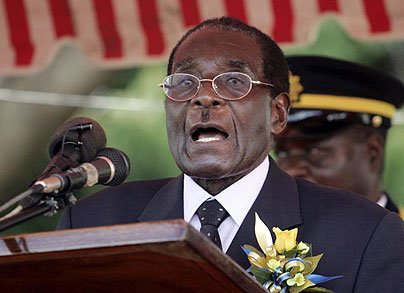
Zimbabwe’s Constitutional Court has declared unconstitutional a law which makes it a crime to insult the president.
Prosecutors should not be overzealous about charging people who comment about President Robert Mugabe “in drinking halls and other social places”, the highest court said.
At least 80 cases have reportedly been filed in recent years under the law.
In May, opposition activist Solomon Madzore was arrested for allegedly calling Robert Mugabe a “limping donkey”.
Robert Mugabe denied a charge of insulting the president.
Under Section 33 of Zimbabwe’s Criminal Codification and Reform Act, a person could be jailed for up to a year or fined $100 for insulting the president’s office.

The law was challenged by several Zimbabweans, including a resident of the southern city of Bulawayo, Tendai Danga, who was arrested two years ago for allegedly insulting Robert Mugabe during a row with a policeman in a bar.
The court’s nine judges were unanimous in ruling that the law undermined freedom of expression, making it unlikely that the government will appeal against it.
However, the court gave Justice Minister Emmerson Mnangagwa until November 20 to file an appeal.
In August, a court acquitted a 26-year old man, Takura Mufumisi, charged with intending to use a poster of President Robert Mugabe as toilet paper in a bar.
Zimbabwe approved a new constitution which expands civil liberties in a referendum in March.
Many Zimbabweans have welcomed the court’s ruling, believing the law had insulated the president from criticism.
Robert Mugabe, 89, extended his 33-year rule in elections in July.
His rival Morgan Tsvangirai rejected the result, alleging it was marred by widespread fraud.
The court also declared unconstitutional a law curtailing media freedom, following a challenge by a privately owned financial publication, Zimbabwe Independent.
The state should not “penalize people who make false statements in good faith about a matter of public concern”, Deputy Chief Justice Luke Malala said.
Zimbabwean law currently states that a person can be sentenced to 20 years in prison for publishing falsehoods.